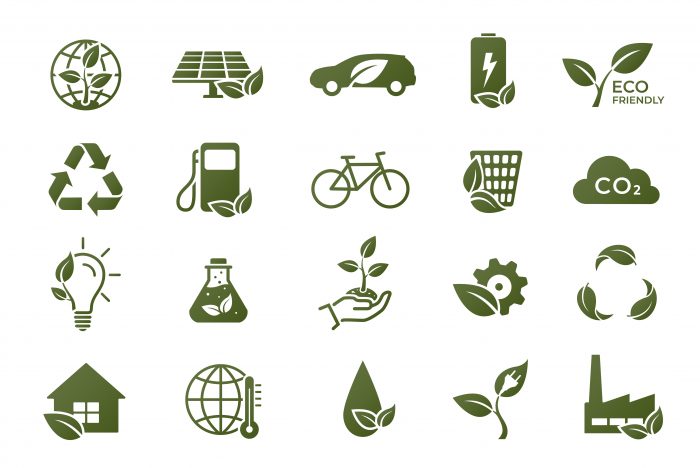Millennials and Gen Z are on the brink of taking over the real estate market. How can you connect with these future sellers and buyers to make an impact?
Industry Insights
Within the decade, Millennials and Generation Z will make up the majority of the workforce and more spending power than the generations before them.
However, these generations have key differences, including how they budget, spend, and save money based on their distinct values and perception of brands.
Although most of Gen Z is only on the cusp of the home-buying age, their interests and concerns will shape demand in the real estate market for years to come.
Who are Millennials and Gen Z?
Millennials
Millennials are infamous for their attachment to tech, but there’s a lot more that makes this group unique. They are the last generation to experience the cross-over into the digital age and have developed many of the modern communication tech that we use today.
Millennials are what we call “multi-screen users”, meaning that they are likely to have a smart phone, laptop, tablet, apple watch, etc. and use them all throughout the day.
Millennials are typically identified as being born between 1981 to 1995. Overall, millennials value convenience and positive customer interactions over brand loyalty.
For real estate agents hoping to appeal to millennials, it’s crucial to create a smooth customer experience – especially online through your real estate website. This generation has little to no patience for faulty digital platforms.
Gen Z
We often forget that Gen Z was raised during the recession between 2007 and 2009. While luxury items may have become more mainstream with their generation, many are more pragmatic than the generation before them.
They often view job security, consistent income, and personal spending with more caution than their previous generation.
Following the free-spirited, internet generation of millennials, Gen Z was raised with evidence of the wide range of ways to gain knowledge and wealth without a traditional education.
This is the first generation who doesn’t remember what life looked like without the internet. Screens are synonymous with connection and they are likely to have more screens than millennials, yet still navigate the digital world intuitively.
They are highly connected and are the most likely to use social media and other mobile apps.
How to Appeal to Both Generations
Millennials and Gen Z have many opinions in common. Their stand on values, brand relationships, client reviews, and more, flow along the same lines due to their similar experiences growing up.
Values
Both millennials and Gen Z place extremely high value on sustainability, green companies, and social justice. In fact, 86% of both Millennials and Gen Zers recently agreed in a survey that companies should take a stand on social issues. 64% went as far as to agree that they were “very likely” to make a purchase based on a company’s commitment.
But taking a stand is about more than just changing your facebook profile photo. As a real estate business, you can connect with this group’s values by showing behind the scenes of your day to day and how you live in alignment with ‘green’ principles.
Less Promotional and Ad content
As generations who have been swamped with advertising, dominantly online, Millennials and Generation Z are tired of being sold to. They prioritize authentic, applicable information over any type of blatant promo.
It’s all about generating as much organic buzz about your real estate experience as possible. Earned media (consumer approval that you can’t buy) is the route to getting customers to talk about you and spread the word.

Stories Over Sales
Storytelling is a major factor in successful advertising – especially in regards to young adult generations. Dawn dish soap becomes a lot more appealing when you know that it is used to save the lives of drowning baby ducks.
Your real estate brand should have your story and your business mission front and centre in millennial and Grn Z branding.Your story is not just helping people to buy and sell homes, it’s what motivated you to get into the business, your relationship with stakeholders, and stance on hot topics. The moment your mission or styles of business doesn’t gel with these age groups, you can kiss those clients good-bye.
Millennial and Gen Z have notably lower rates of brand loyalty compared to previous generations. For these groups, loyalty is not about time or tradition. They’re not afraid to take their business elsewhere if their expectations are not met.
If you want to hold on to these clients for as long as possible, every interaction had to be customized to fit their unique needs. These generations are all too familiar with (and tired of) blanket solutions or feeling like a number in a system.
Web Design
More than any other generations Millenials and Gen Z explore the web on their phones, often while doing other things.
Your real estate website must be eye-catching and optimized for mobile to hook these leads. Additionally, 90% of millennial and Gen Z clients are strict about the privacy of their information and activity. They’ll want your assurance that any personal information they share with you, will stay between you and them.
If, for example, you are attempting to gather leads from this group via newsletter sign ups, assure them that their information will only be shared with your team and used to send them the most relevant emails for their unique situation.
AgentFire websites are built with our clients and your clients in mind. That means mobile optimization is always priority and you can be confident that our add on and marketing tools are up to par with the highest Gen Z expectations. Check out our web stacks here.
Social Media
As technology becomes increasingly ubiquitous and intuitive, Gen Z increases their standards and ease when using technology.
Keep an eye out for technology that combines multiple functions and ways to interact; chances are, Gen Z is there. For example, browsing Facebook posts for home listings or creating original video within Instagram.
Video platforms, especially those that encourage short-form videos, are on the rise for both millennials and Gen Z.
Online Review Culture
The accessibility, authenticity, and speed of online reviews, has changed the way consumers interact with business owners.
These days, people care far more about how other clients feel about your performance than what you have to say about yourself. According to Quick Sprout, 68% of millennials report that they won’t make a major purchase unless they have discussed it with family or friends. This includes which neighbourhood to live in or house to purchase.
Email marketing
Millenials and Generation Zers are “skimmers”. They’re not the group to thoughtfully read ever word of your monthly wrap-up emails.
Your real estate emails need to be designed with valuable visual clues that separate content and call attention to others. This includes scalable headlines, bullet points, engaging images. In fact, Gen Z and millennials have been studied to have 12 – 8 second filters. How much of your email can be read in that time and what do you want them to prioritize?
As mentioned earlier, these users are not fans of heavy promotional content. If you’re going to steal those value 12 seconds of their time, fill it with actionable and informative information.
The next thing you’re probably wondering (or should be) is – how many emails do I send to keep them interested?
Over 1/4 of Gen Z prefers to receive emails once a day. Millennials also prefer to receive emails once a day, however in much larger percentages, 63% roughly. To keep the conversation and email opens going, shut off no-reply email addresses. This quite literally tells your readers that you don’t want to hear from them. With a conversational audience, those no-reply addresses will only reflect negatively on you.
What Differentiates Millennials and Gen Z?
Millennials

Life Outlook
Millennials are recorded as the most educated generation in American history (based on completion of degrees), so they way they view large investments is bound to be a bit different. Plus, they are earning more than any other past generation at their age.
Despite these facts, millennials are not aimless spenders. While they do love to buy, they see the world through the lens of life-long learning and experience.
Brand Identity
Reports show that nearly 3/4 of millennials are more likely to purchase from brands that have the same values. As a real estate professional, your brand identity needs to put your values at the centre and reflect these values throughout your marketing material.
For example, take the time to thoroughly flesh out your about page and feature your company mission on the home page of your real estate website. If given the space, the bios of your social media profiles should also clearly reference your mission.

Social Media Habits
According to self-reports, millennials use social media for 3.8 hours a day (although this may have temporarily increased during pandemic times), much more than previous generations, but less than Gen Z. For millennials, all of which are working age, Linkedin and Instagram take the title as the most popular platforms.
Additionally, Millenials spend more time buying, selling, and building their brand than Gen z.
Informative Longform Content
If you’re able to produce useful content that teaches them about topics they’d like to learn, you can win over the millennial audience.
The challenge most marketers commonly have with millennials and younger generations is keeping their attention. Mixed media including videos, images, infographics, and text, create enough variety to keep eyes on your pages. Alternatively, the ability to multitask while engaging with your content is an attractive factor. This is why so many millennials gravitate towards podcasts; the format is easy to listen to while completing other tasks.
Emails and Newsletters
Millennials receive more emails than Gen z. If you want to stand out among the normal 6-50 emails they receive each day, you’ll need a well-thought out and unique email strategy.
Take a look at our Drip Emails Guide to get you started on the right foot.
Part of the reason millennial receive more emails? They are more likely to subscribe to newsletters than the younger generation.
Gen Z
Life Outlook
Riding the coattails of millennials, Gen Z is markedly free-spirited and accepting. They crave authentic content and materials, from the products they purchase to the media they consume. This generation is brand new (or soon-to-be) to the real estate game and are likely to look at real estate with the same light hearted attitude.
They want real estate professionals to be more ‘real’ than selling them a lavish lifestyle they know is over-the-top and unattainable. Individuality reigns over commercialized ‘perfection’. They consistently choose brands that reflect independence over single-minded messaging.
Social Media Habits
More than any other generation, Gen Z is connected to and defined by social media. They are the generation most likely to spend multiple hours surfing social media platforms. In fact, they follow more people than millennials in every single category apart from small businesses and politicians.
In few words, Gen Z is attracted to short videos, packed info, privacy and realness.
To catch the attention of Gen Zers, lean on short, info-packed, video content and guard their data. Gen Z statistically prefers video content over millennial counter parts and highly prioritizes privacy. This explains their interest in ephemeral content on networks like Snapchat and Whisper.
These preferences are also reflected in the types of influencers Gen Z engages with. In a Think With Google report, 70% of Gen Z respondents stated that Youtubers appeared ore relatable than Hollywood celebrities.
Emails and Newsletters
It’s important to know that Gen Z is notably less likely to check and communicate using emails. Additionally, less than 20% are likely to subscribe to an email newsletter (promotions and discounts are the driving factor for few that do subscribe).
All in all…
Millennials and Gen Z can pose a marketing challenge for those of us still stuck in the TV advertisement era. However, these generations will fill the real estate market and define marketing strategies in the years to come. Learn to target millennial and Gen Z now, and you’ll have the necessary perspective to build a marketing strategy that creates results.

